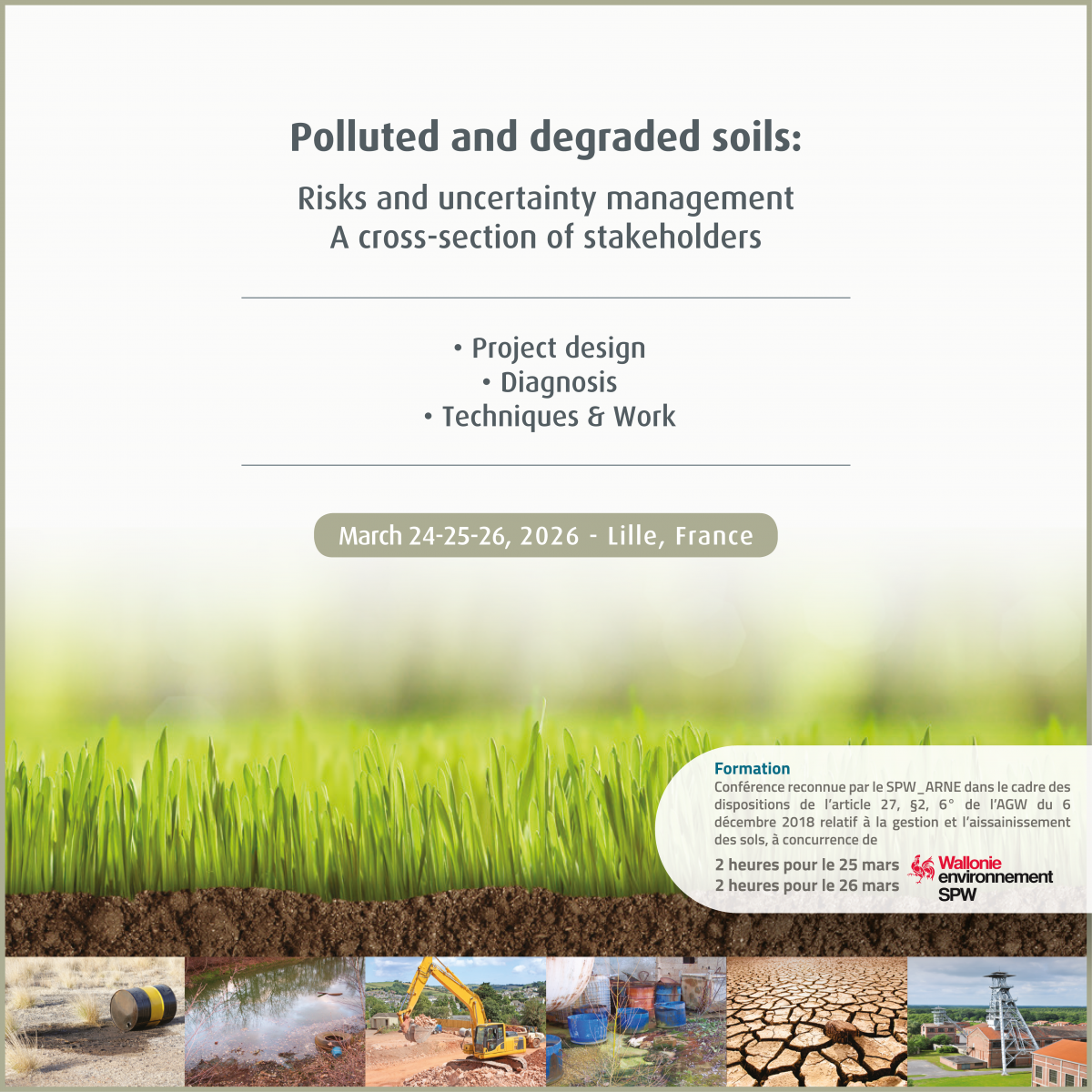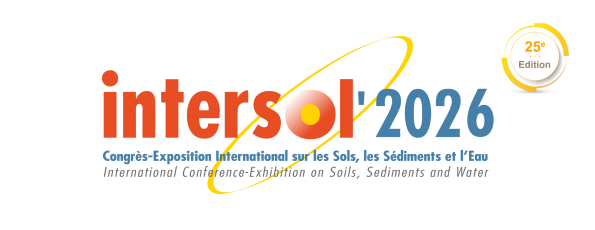

Partners
Companies
Institutionals
Summary
Innovative Soil Remediation Solutions & PFAS Challenges
After 25 years of success in France and Belgium, Intersoil, International Conference-Exhibition on Soils, Sediments and Water, arrives in Spain for its first-ever edition under the theme “Innovative Soil Remediation Solutions & PFAS Challenges.” The conference will bring together public authorities, industry leaders, consultants, researchers, and remediation experts from across Europe to explore innovative approaches to contaminated soil and groundwater management. Over two days of scientific and technical sessions in Barcelona, discussions will focus on site characterization, in situ and nature-based remediation technologies, large-scale project strategies, and risk-based decision-making. A full day will be dedicated to the emerging challenge of PFAS, covering regulatory frameworks, environmental behavior, and the effectiveness of current and future treatment solutions.
We invite professionals, researchers, consultants, and innovators to submit abstracts and share their experience, innovations, and field-based case studies with the European remediation community. Intersoil Barcelona 2026 will provide a platform to showcase practical solutions, emerging technologies, and lessons learned in the management of contaminated soil and groundwater.
The conference will be held primarily in
Spanish and English, the two main business and technical languages in Spain,
ensuring broad accessibility an
So respond to this call for applications, because we want to hear from you!
themes
1- Regulatory and Institutional Frameworks for Soil Remediation
European and national perspectives, accreditation schemes, and regulatory
drivers
2- Site Characterization and Conceptual Site Models
From investigation strategies to data interpretation supporting remediation
decisions
3- Risk Assessment and Risk-Based Remediation Approaches
Human health and environmental risk assessment from evaluation to
implementation
4- Tailored Remediation Strategies for Contaminated Sites
Selecting and combining remediation techniques based on site-specific
conditions
5- Innovative and Nature-Based Solutions for Soil and Groundwater
Remediation
Opportunities, limitations, and real-world applications
6- In Situ and Emerging Remediation Technologies
Advances in in situ treatment methods and novel remediation concepts
7- Strategies for Complex, Deep or Large-Scale Remediation Projects
Technical, logistical and economic challenges and lessons learned
8- PFAS Regulatory Frameworks and Policy Developments
European regulations, national implementation, and implications for site
management
9- PFAS Site Characterization and Source Identification
Analytical challenges, source tracking, and investigation methodologies
10- PFAS Environmental Fate, Transport and Risk Assessment
Transfer mechanisms, modeling approaches and exposure pathways
11- PFAS Treatment Technologies: Current Performance, Limitations and Future
Perspectives
Proven solutions, pilot-scale results, R&D developments and emerging
approache
Please let us know if you would like to share your experience as part of a round table discussion.
Important!
Contributions will be selected based on:
✧ their ability to present feedback on one or several use cases
✧ highlighting their novelty or improvement in relation to existing knowledge
✧ the technical, economic, energy, environmental and social context
✧ the prospects considered and their justification
✧ their ability to present feedback on one or several use cases
✧ highlighting their novelty or improvement in relation to existing knowledge
✧ the technical, economic, energy, environmental and social context
✧ the prospects considered and their justification
To be considered, your application must be sent necessarily with:
- Title of the presentation in English
- A summary in English
Application
You are concerned :
► Public authorities responsible for the environment (government agencies: Soil, Water, Air), town and country planning, industry, etc.
► R&D organisations
► Local authority technical and planning departments
► Property developers and planners
► Gas, oil, chemical, mechanical engineering, metallurgy,
paper industries, etc.
► Real estate and property agencies
► Insurance, banking
► Geotechnicians, engineering companies, remediation professionals, architects, town planners, landscapers, etc.
► Equipment manufacturers
► Academics
► Medical practitioners
► Agriculturists
► Legal professions (lawyers, notaries, liquidators, etc.)
► Owners of brownfield sites
► Military authorities
